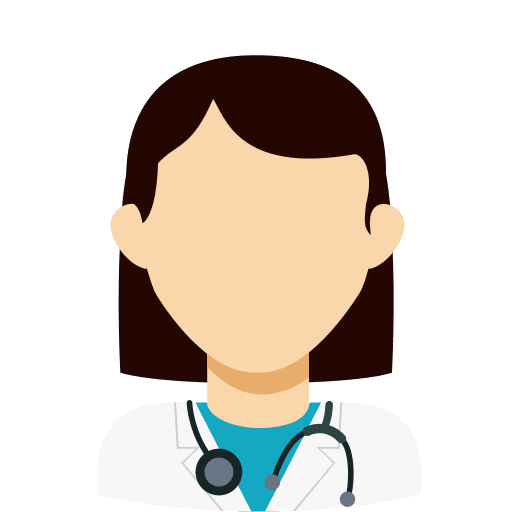In my clinical experience, I have frequently seen patients complaining of the inability to fall asleep or concerns regarding having good quality sleep. This has become a blazing issue and sleep disorders such as insomnia can cast multiple negative impacts on human health. Almost 70 million Americans are reported to suffer from sleep disorders.
Impact Of Poor Sleep
The famous quote “you know the true worth of something when you lose it” also applies to sleep. A lack of good night’s sleep on a regular basis can have the following implications on the body:
- Decreases productivity and concentration
- Increases risk of heart diseases and diabetes
- Impairs cognition making you prone to diseases like Alzheimer’s and dementia
- Leads to depression
- Weakens the immune system
A study suggests that sleeplessness negatively impacts heart health (cardiovascular health) and diabetes.
With these in mind, let’s now look at how to improve your sleep, as well as how to fall asleep and fast.
How To Fall Asleep Better And Fast
Based on my clinical experience I have shortlisted these methods I have found to be helpful for sleep improvement.
- Follow a sleep schedule
The best and the most prevalent tip for falling asleep fast is to set up a routine and follow a schedule.
Your body follows a built-in biological clock and a rhythm known as the circadian rhythm. By waking up at night and sleeping in the middle of the day can disrupt your sleep-wake cycle. In one study, it was found that sleeplessness is an outcome of circadian disturbances that lead to multiple health complications. Therefore setting up a routine that is in-line with nature’s clock will help you sleep better and quickly.
- Get rid of your smartphones in the bedroom
Smartphones emit blue light that affects sleep quality. A study suggests that light from LED smartphones negatively influences sleep by altering the levels of sleep hormone (melatonin) naturally produced by the body.
Another analysis carried out in 2020 found social media to be a major culprit in hampering your sleep. The study identified that smartphone users frequently suffer from a fear of missing out on important activities and notifications that leads to psychological imbalances and sleep issues.
You should follow the habit of restricting your smartphone (especially social media ) usage when going to bed. An analysis concluded that restricting smartphones in the bedroom improves overall wellbeing and leads to increased happiness.
- Watch your sleep
In some cases falling asleep is not that big an issue, but maintaining sleep is a concern. Sleep maintenance is important especially when you are suffering from an underlying medical issue such as restless leg syndrome. Restless leg syndrome is a disease where the patient has an uncontrollable urge to move their legs that can affect the quality of their sleep and could lead to sleep deprivation and reduced daytime functioning, one study suggests. If sleep maintenance is a consult, a doctor can help.
On the other hand, mid-day naps and sleeping longer than normal can also make it hard to fall asleep at night. So, it is best not to oversleep so that your chances of falling asleep at the right time are better.
- Pay attention to your sleep environment
This is perhaps the most efficacious of all steps for improving the sleep onset time. The majority of the population is unaware of the concept of sleep hygiene. Sleep hygiene comprises all steps necessary to induce good sleep including smartphone restriction, routine following but our main focus is on optimizing the bedroom and the sleep environment.
Steps involved in improving the sleeping environment include:
- Select an ideal mattress and pillow for you
- Set the room temperature levels to optimal values (not too cold nor hot)
- Dim the lights (blocking maximum light is recommended)
- Try some aromatherapy (soothing scents for relaxation)
Athletes also can undergo sleep optimization procedures to boost performance.
- Change dietary habits
Avoid consuming tea and coffee in the late afternoon, evening and before going to bed. Coffee contains caffeine that acts as a CNS stimulant. CNS stimulants activate the brain, keeping you awake and making it harder for you to sleep. Therefore, the use of caffeinated beverages and coffees is discouraged.
- Get some exercise
Another helpful way of falling asleep fast is to start adding some exercise to your daily routine. A randomized controlled trial concluded that weight lifting exercises were effective in improving sleep quality and reducing depression.
- Try mindfulness
A notable cause of sleeplessness is depression and anxiety. Other mindfulness activities such as yoga and pilates can also help you relieve stress, anxiety, and depression making it easier for you to relax right before bed.
A fall in anxiety will help you sleep better.
- Consider supplements
If the lifestyle and dietary changes do not work then maybe it’s time to consider you can opt for herbal supplementation. There are different herbs that you can use to fall asleep and fast. Chamomile, passionflower, and ashwagandha are prominent supplements that can improve insomnia and sleep disorders.








